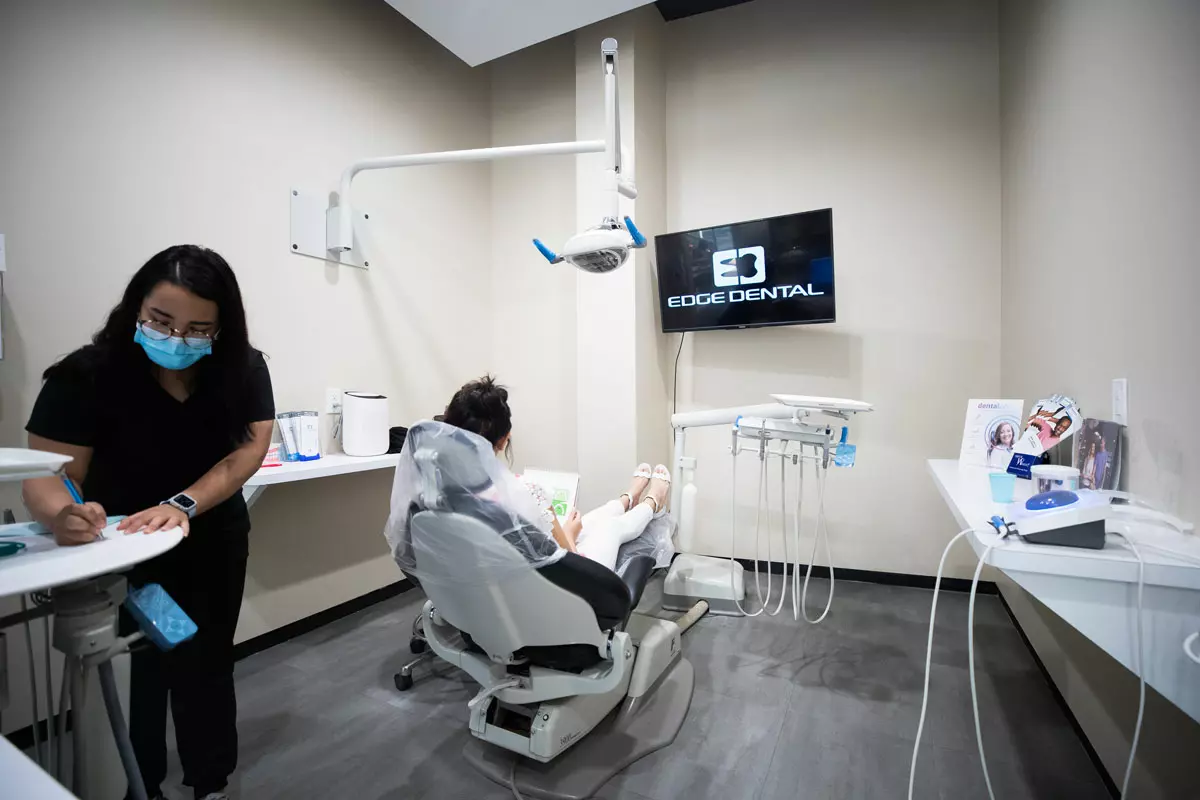Sleep apnea is more than just snoring. It’s a potentially serious sleep disorder where breathing repeatedly stops and starts throughout the night. This constant interruption prevents your body and brain from getting the deep, restorative sleep needed for optimal health. People with untreated sleep apnea may experience fatigue, difficulty concentrating, high blood pressure, and even heart disease.
One of the most common forms is obstructive sleep apnea (OSA), which occurs when the muscles in the back of your throat fail to keep the airway open. Although many people associate sleep apnea treatment with CPAP (Continuous Positive Airway Pressure) machines, not everyone finds this method comfortable or convenient.
That’s where sleep apnea dentistry steps in—a modern, non-invasive solution many patients find effective and easier to manage.
What Is Sleep Apnea Dentistry and How Does It Work?
Sleep apnea dentistry refers to a specialized branch of dental care focused on managing sleep-disordered breathing, including OSA. Dentists who practice in this field use oral appliance therapy to treat mild to moderate cases of sleep apnea. These devices are custom-made and work by gently repositioning the jaw or tongue to keep the airway open during sleep.
If you’ve ever searched for “sleep apnea dentistry near me,” you’re likely looking for a local dental professional trained to provide these sleep-focused treatments. These dentists collaborate with sleep physicians to ensure patients receive a comprehensive diagnosis and a customized solution.
How Can Oral Appliance Therapy Improve Your Sleep?
Oral appliance therapy offers a less invasive and more user-friendly alternative to CPAP. Here’s how it helps:
- Keeps Airway Open: The device holds your lower jaw slightly forward, which prevents the soft tissues and tongue from collapsing into the throat.
- Improves Breathing: With a clear airway, you’ll breathe more easily, reducing snoring and apnea episodes.
- Enhances Sleep Quality: Continuous breathing throughout the night means better oxygen flow and deeper, uninterrupted sleep.
- Boosts Daytime Energy: With restful sleep, many people report increased alertness, better mood, and enhanced overall well-being.
When properly fitted by a qualified dentist, these oral appliances are comfortable, discreet, and effective. Searching for sleep apnea dentistry near me can be the first step toward long-lasting relief.
Who Is a Good Candidate for Sleep Apnea Dentistry?
Not every patient is suited for every type of sleep apnea treatment. That’s why accurate diagnosis is critical. Typically, sleep apnea dentistry is recommended for:
- Patients with mild to moderate obstructive sleep apnea
- Individuals who cannot tolerate or prefer not to use CPAP machines
- People who snore loudly but do not have full-blown apnea
- Those seeking a more portable, travel-friendly sleep solution
In Houston, patients looking for sleep apnea treatment Houston TX often turn to dental specialists who understand the nuances of oral appliance therapy and sleep-focused care.
What to Expect During Your First Visit to a Sleep Apnea Dentist
If you’ve decided to explore sleep apnea dentistry, the process usually begins with a consultation. Here’s what you can expect:
- Medical History Review: Your dentist will assess your sleep patterns, symptoms, and any previous treatments.
- Dental Exam: A thorough oral evaluation helps determine if you’re a good candidate for oral appliance therapy.
- Sleep Study Collaboration: In many cases, your dentist will work alongside a sleep physician and request a sleep study to confirm a diagnosis.
- Appliance Fitting: If you’re eligible, the dentist will take impressions of your teeth and design a custom-fit device.
- Follow-Up Adjustments: After fitting the appliance, your dentist will monitor your progress and make adjustments for comfort and effectiveness.
A successful treatment plan hinges on close monitoring and open communication between you, your dentist, and your sleep doctor.
Why Choose Sleep Apnea Dentistry Over CPAP?
For years, CPAP therapy has been the gold standard for treating moderate to severe sleep apnea. However, not all patients adapt well to CPAP machines. Some find the mask uncomfortable, the noise disruptive, or the maintenance cumbersome.
Here’s why many are making the switch:
- Non-Invasive: Oral appliances don’t require power sources, tubes, or masks.
- Easy to Travel With: Compact design makes it ideal for frequent travelers.
- Less Maintenance: Cleaning and upkeep are simple and fast.
- Better Compliance: Patients are more likely to consistently use their dental device compared to CPAP.
By searching for sleep apnea treatment Houston TX, you’ll find local options that prioritize your comfort and lifestyle.
The Benefits of Treating Sleep Apnea with a Dentist
Ignoring sleep apnea can take a toll on your health. That’s why timely intervention through sleep apnea dentistry offers multiple long-term benefits:
- Reduces Snoring: A major relief for both patients and their partners
- Improves Heart Health: Reduces the risk of cardiovascular problems linked to apnea
- Supports Mental Clarity: Enhanced sleep quality sharpens focus and memory
- Improves Mood: Better sleep reduces irritability and lowers the risk of depression
Many individuals are surprised to learn that the key to better sleep lies not in a sleep clinic, but with their local dentist. That’s why typing sleep apnea dentistry near me into your search bar can make a real difference in your health journey.
Finding the Right Sleep Apnea Treatment in Houston TX
Houston offers a wide range of specialists focused on sleep medicine, but dental sleep specialists are uniquely positioned to offer practical, comfortable solutions. When looking for sleep apnea treatment Houston TX, be sure to choose a provider with:
- Experience in dental sleep medicine
- Positive reviews from real patients
- Collaborative relationships with sleep physicians
- Commitment to customized care
You don’t have to settle for restless nights and groggy mornings. The right dentist can guide you toward a better, healthier sleep.
